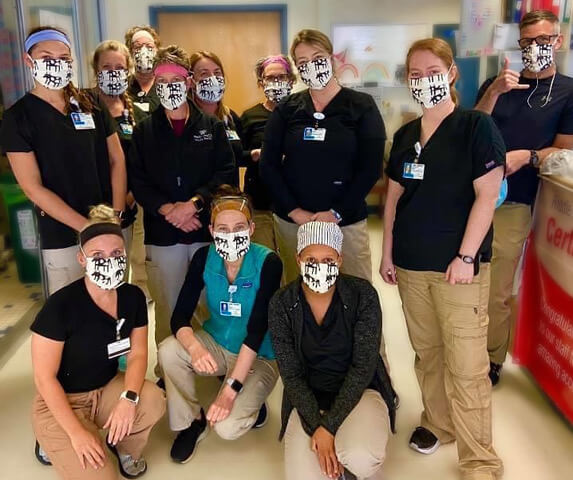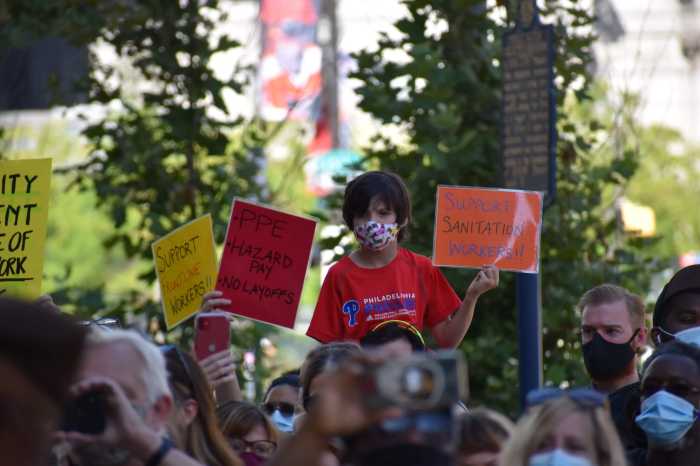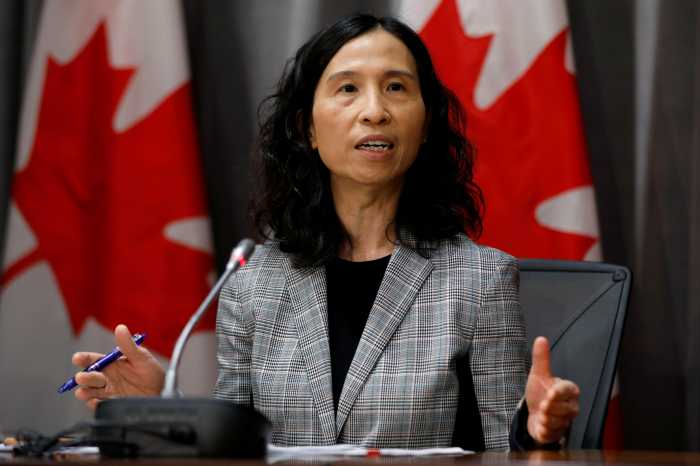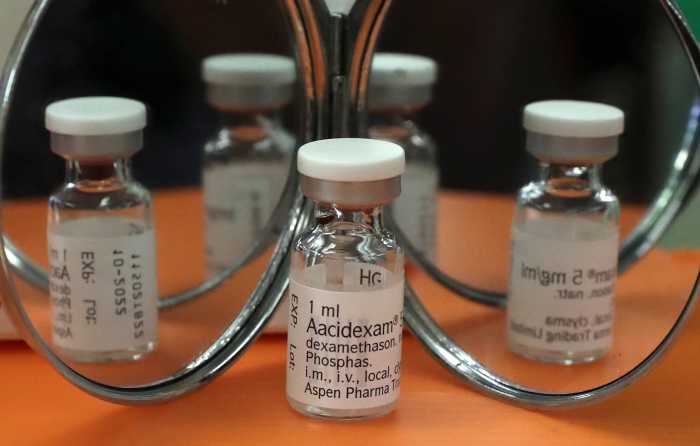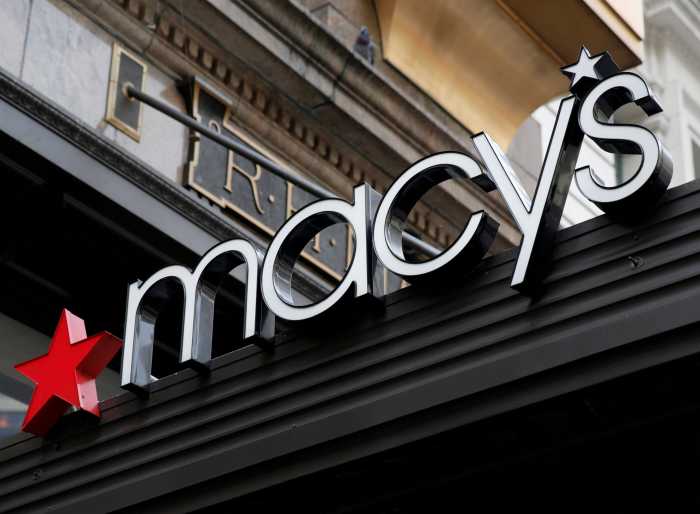
In any city, suburb or small town, there are a variety of businesses operating, some big and some small. Although all businesses are an essential part of keeping an economy up and running, small businesses certainly are vital in keeping small communities alive—something that was overlooked before the pandemic hit, but after COVID-19, it’s something that is on the forefront of most people’s minds.
The aspect of small businesses that sets them apart from corporations are the people who run them. Each venue or service provider wasn’t just started as part of a chain to keep the money flow going for a big-time company, most of the time they were started from a passion or a love and grew to become much more than just a venture for those who open them.
For Janice Martin, owner of Janice Martin Couture and Sewn For Good LLC, her business has not only pivoted during the pandemic to help itself sustain financially, but it has also shifted to help mitigate the PPE problem our country has faced and continue to provide not only necessary but also quality supplies for many who desperately need it.
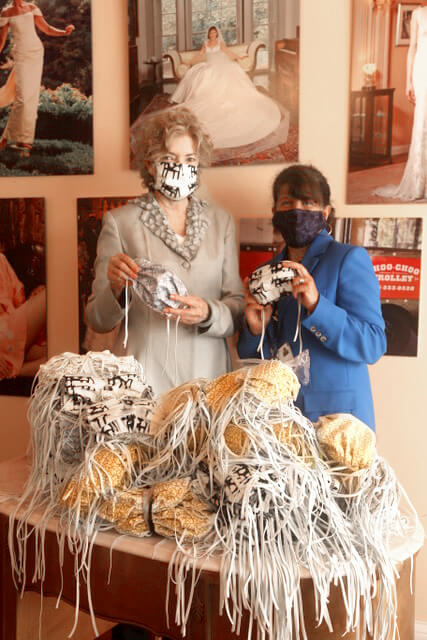
Janice Martin Couture started back in the 80s, and what began as a bridal and evening wear company grew into a bridal wear and family heirloom business offering anything from mother of the bride dresses to repurposed christening gowns. On the other hand, with Sewn For Good LLC, Martin wanted to start giving back in her own way, and she knows to do just that through fashion. What the fashion maven began doing was purchasing fabric out of a woman’s cooperative in Cambodia. Every time Martin purchased fabric and supported their women’s and children HIV center there, one of her clients would match any money spent and give it to Covenant House over in Camden. That sparked the first steps for Sewn For Good, which then expanded after Martin’s visit to the Women’s March. After marching and looking through photographs, Martin realized she could begin making scarves, and by doing so could also donate to different organizations, all of which she has chosen to be liberal or non-partisan. Currently, there are five designs available for the scarves line.
However, after COVID-19 hit, Martin’s business had to shift to adapt to the unprecedented times.
“Everybody was freaking out about COVID and the fact that there is no PPE,” says Martin. “So, I got a letter from Lankenau Hospital asking for masks and I wrote them and said I’m not just going to make you any mask—tell me what you want, because, we’re a couture house and we can do a really specific pattern. I [then] designed a series of masks that have been vetted by specialists at three different hospitals and they meet the criteria.”
Martin was able to begin funding for the masks by simply asking for small acts of kindness. Those favors grew into something much more and eventually turned into a way for out-of-work seamstresses to once again make money.
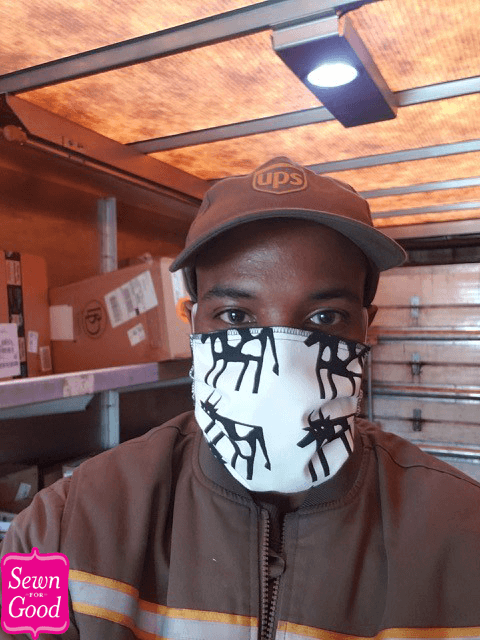
“I offered to make masks for my clients,” explains Martin. “I said, if you want to send me enough money for postage, I’ll mail your masks, and if you don’t want to pick them up and you send me too much money, I’ll just give it to the food pantry. Instead of getting checks for $15 to $20 bucks which is what I expected, I started getting checks for $100, $200 and $500. Then I realized, hey wait a minute I can use this and pay out of work professional seamstresses to make masks and give them to the hospitals. We [now] have a whole system in place where people come in and choose masks and they make a donation, and that donation goes to help pay for the seamstresses.”
Martin’s mask-making business in total has provided over 4,200 masks for different hospitals and organizations including Einstein Medical Center, Riddle Hospital, Merrick’s Pharmacy, Chester City Keystone Center/extended care and more. Although production has slowed down a bit since the pandemic first started, Martin still foresees a need for her mask-making and continues to get requests for orders. Most recently, Martin has even gotten requests from a hospital and two small companies to make a mask with its specific private label on the front. Those orders, which were paid for in full, helped fund more work for seamstresses and helped provide more PPE resources for people who need it the most. But what Martin stresses is that although the masks are a necessity, hers are also handmaid, comfortable, affordable thanks to the donations, and also high-quality.
“We’ve been told our masks are the most comfortable from all three hospitals that we’ve donated too. They fit N-95 and surgical masks. We will keep making them. Right now, everybody is required to wear them, so I think the market is still necessary. Someone can come in and spend a buck or 50 bucks, then that’ll continue to help with what we’re doing with the hospitals,” says Martin.
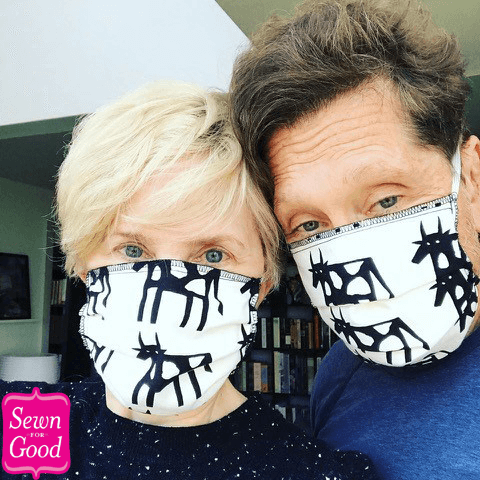
Although Martin did receive some help from the government through a PPP loan, most of what helped her business survive were her customers supporting her masks and scarves. However, dresses are still getting done at Janice Martin Couture, and those who are still feeling uneasy about crowds can rest assured knowing that the shop takes customers by appointment only, nixing the worries of large crowds. Martin also started a GoFundMe page for the business, but ultimately says that customer support is what will help keep them afloat.
“We did start a GoFundMe campaign since everybody needs masks, and if you want a really good quality mask you can get them from us. We can mail them [or people] can pick them up at my shop, and we mail them literally all over the world. Then people can make a donation, and that keeps the project going,” explains Martin. “I’ve got a handful of women who have been donating their time to help with this project and I’ve had a lot of fabric donated and what we’re looking for is good home furnishing fabric—which are a 100% cotton but in a satin weave, that fabric is often used for curtains lets say.”
Mostly though, this new project has helped one small business owner navigate a pandemic both financially and mentally.
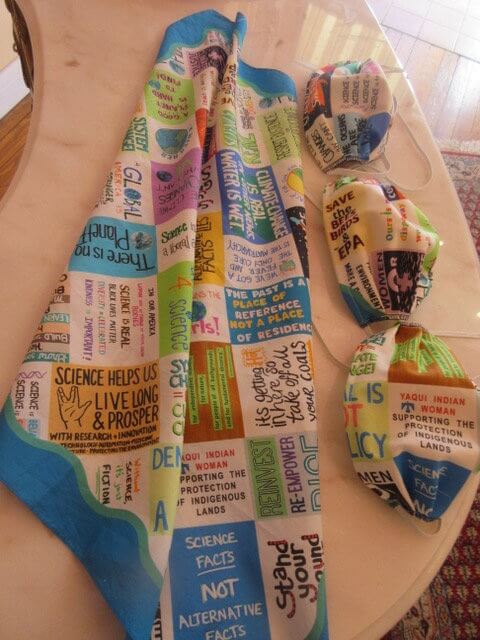
“I feel extraordinarily lucky because I have a shop that I can go to every day. It’s a large space, so the women who have helped me develop this project, it has given me something to do and think about other than COVID,” says Martin. “I go into my office and I am busy, I think I’m only going to go in for a couple of hours, but I’m there for 6, 8, sometimes 10 hours. It has really kept me distracted on the one hand with all of this stuff going on, and it makes me feel like I have the opportunity to do something positive with the skills that I have, and that’s a really good feeling. When I first started this, it was oh ‘I’ll make masks for my clients as a thank you for being clients,’ and then it just grew. I didn’t intend for it to become a project like this. But the fact that I can hire women who really need the income, who may not have access to supplemental income from the government is really quite wonderful.”
To learn more about Janice Martin Couture and Sewn For Good LLC visit janicemartin.net and sewnforgood.com



